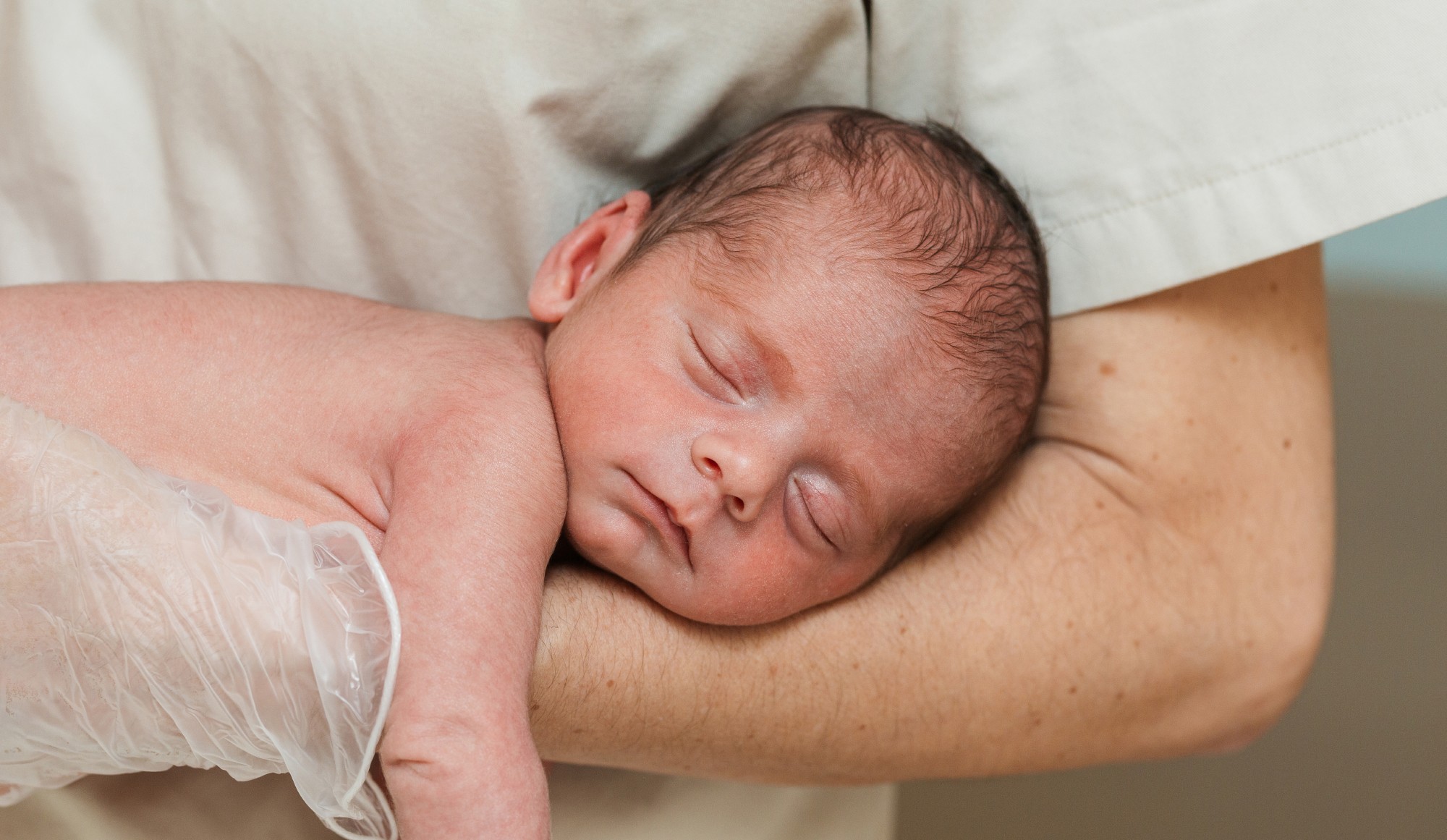
Medically Reviewed by Dr. Lee Hwee Chyen
MBBS MRCP (UK) FAMS (Dermatology)

Newborn rashes are areas of swollen or irritated skin that commonly appear in infants shortly after birth, and are often part of the normal developmental process of an infant’s skin. Here are five common myths about newborn rashes, and why they are misconceptions.
Many rashes seen in newborns are a normal part of their skin development and are not related to allergies. True allergic reactions in newborns are relatively rare and typically accompanied by other symptoms such as persistent itching, redness, or swelling.
For example, erythema toxicum is a frequent, harmless rash that appears within the first few days of life and resolves spontaneously without treatment. Another common condition, milia, consists of tiny white bumps caused by trapped keratin and is not an allergic reaction.
Delicate newborn skin takes time to adjust to the environment outside the womb, making it susceptible to rashes. Rashes may not be caused by poor hygiene but by other factors such as sensitive skin that can become irritated by contact with various materials, chemicals, or rough fabrics.
Hormones passed from mother to baby can cause skin reactions like baby acne. Excessive heat, cold, or moisture can also lead to skin irritation and rashes in newborns.
Avoid treating rashes by excessively cleansing your child. Overwashing or using harsh soaps can harm a baby’s skin, leading to dryness and irritation. Use mild, fragrance-free products and clean gently when needed.
Even if they seem safe and effective, home treatments may not be suitable for a newborn’s sensitive skin, which reacts differently to certain ingredients compared to adult skin.
Ingredients in home remedies, like certain oils or herbal extracts, can cause or worsen allergic reactions in babies. Many home remedies have yet to be clinically tested for safety or efficacy in treating newborn rashes.
Consult with your paediatric dermatologist before applying any home remedy to your newborn’s skin.
Conditions like baby acne, milia, and erythema toxicum are specific to the individual baby’s skin and do not spread to others. Many newborn rashes are caused by factors such as hormonal changes and skin sensitivity rather than infections.
If your newborn’s rash is accompanied by other symptoms like fever, lethargy, or appears infected, it should be evaluated by your paediatric dermatologist.
Many baby lotions and oils contain fragrances, dyes, or other additives that irritate a newborn’s sensitive skin and exacerbate rashes. Products that are mild and suitable for older children may still be too harsh for newborns, and hinder the healing process of a rash.
Certain skin conditions may require more specialized care. For example, oily products can worsen conditions like baby acne, while some rashes might need medicated creams prescribed by your paediatric dermatologist.